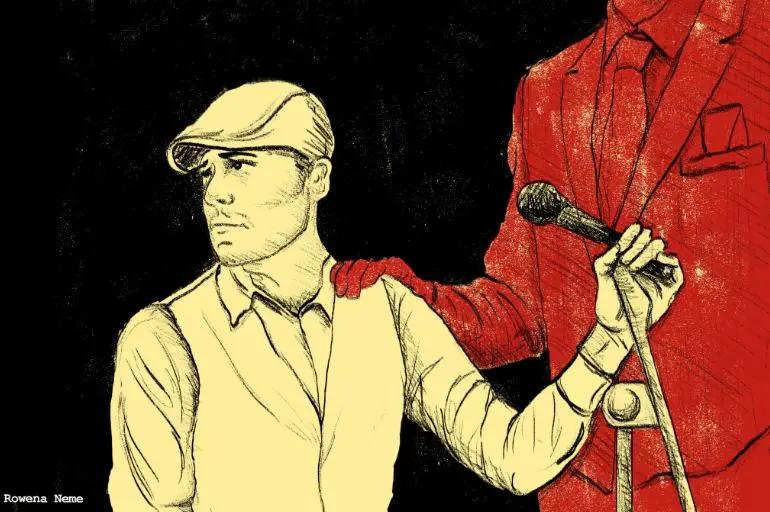
You browse your favorite playlist on Spotify, humming to the rhythm of the songs that define you. Suddenly, a low blow to your musical taste: a song you don't like, an artist you don't even know, bursts into your sonic oasis. You've made it clear to the app that those songs are not your favorites, and no matter how many times you do it, the same group or type of song continues to haunt you. Does it sound familiar to you?
You are probably being a victim of payola in the streaming era. Payola, that practice as old as music, a practice that was once exclusive to radio, has evolved and infiltrated the digital world, affecting the way we consume music, and others audiovisual content, and how artists achieve visibility.
What is Payola?
Payola, also known as "musical bribery," this term is derived from "pay" and "ola" (from Victrola, a brand of phonographs) and is the practice of paying an entity, such as a radio station. or a streaming platform, to promote certain songs. Historically, payola involved bribing DJs and radio station executives to play a song repeatedly, artificially increasing its popularity. In the digital age, this practice has evolved and adapted to new platforms, creating a complex and often opaque landscape for music consumers.

How Does Payola Work in the Digital Age?
In the world of streaming and social networks, payola has taken various forms:
Playlists
Platforms like Spotify and Apple Music create playlists that can have millions of followers. Being included on one of these lists can catapult a song to fame. Record labels and music promoters may pay to ensure your songs appear on these featured lists. Although the conditions of use of this type of platform almost completely prohibit this, many times we can come to doubt the veracity of this when seeing certain songs or artists in these playlists.
Influencers and Social Networks
Influencers on platforms like Instagram, TikTok and YouTube have enormous promotional power. Music companies pay these content creators to feature and promote new songs, often without disclosing that it is sponsored content.
They can also pay to use these songs "naturally" in the content they make in order to try to increase their popularity. In addition to paying music websites or blogs to publish positive reviews of your music.
Digital Advertising
Songs can be promoted through paid ads on various digital platforms, including website banners, YouTube video ads, and social media promotions.
Algorithm Manipulation
Streaming services use algorithms to recommend music to users. Record labels can influence these algorithms by paying to have their songs recommended more frequently, regardless of user preferences.
Bots and Data Falsification
In an attempt to artificially inflate the popularity of a song, bots can be used to increase the number of plays, likes and followers on digital platforms.

What are the Consequences of Payola?
Digital payola has multiple negative effects on both the music industry and consumers:
Market Distortion
Payola creates a false perception of popularity, where the songs that reach the top of the charts do not necessarily do so because of their quality or merit, but because of the money invested in their promotion.
Disadvantage for Independent Artists
Artists who do not have the resources to pay for promotion are marginalized, making it difficult for them to reach a wide audience. This perpetuates a cycle where only artists backed by major labels achieve success.
User Experience
Listeners may feel frustrated that their musical preferences are not respected. Manipulating algorithms and playlists can make that the experience of listening to music becomes repetitive and unsatisfying.
Loss of confidence
When consumers realize that the recommendations they receive are not authentic, they can lose trust in streaming platforms and the music industry as a whole.
Damages the integrity of the music
Payola makes music less authentic and more commercial.
Deceives consumers
Consumers can be fooled into thinking that a song is popular or of good quality when in fact it is only because it has been paid for promotion.
Limit musical diversity
Payola can lead to the promotion of a similar and predictable type of music, limiting the diversity of musical styles heard.

La Payola on Spotify: Discovery Mode
One of the most discussed mechanisms of digital payola is Spotify's "Discovery Mode." This program allows artists and labels to pay to have their songs prioritized in Spotify's algorithm recommendations. Although Spotify argues that this helps artists get more exposure, in reality, it creates a system where money directly influences visibility, harming those who cannot pay for this service.
Spotify's Discovery Mode is a clear manifestation of payola in the digital age, where monetization of visibility becomes common practice. Artists who participate in this program have an unfair advantage over those who rely solely on the quality of their music and word of mouth to gain popularity.
How to Identify Digital Payola
Detecting digital payola can be complicated, but there are certain signs that can help:
Excessive Repetition
If you notice that certain songs are constantly repeated in different playlists and recommendations, despite not being aligned with your tastes, it may be a sign of payola.
Sudden and Inexplicable Popularity
Songs that quickly rise on the charts for no apparent reason, such as a recent release or a visible marketing campaign, may be fueled by payola.
Promotions on Social Networks
See if influencers repeatedly promote music without disclosing sponsorships. This may be an indication of undisclosed paid content.
Data Discrepancies
Check if there are inconsistencies in the numbers of views, likes and comments. Popularity that does not match the level of genuine interaction may suggest bot intervention.
Algorithm behavior
Songs that you have marked as "disliked" continue to appear in your recommendations or songs of the same genre. Additionally, you find yourself constantly listening to songs of the same genre or style, even if you have not explicitly selected it.
Recommendations to combat digital payola
- Use the Dislike feature in Spotify to prevent songs you don't like from being recommended to you in the future.
- Follow artists and music accounts that you like and who share your musical tastes.
- Create custom playlists with your favorite songs.
- Use alternative streaming platforms to Spotify.
- Support independent and emerging artists.
Payola in the digital age is a reality that distorts the music industry and affects the experience of listeners. While it is a complex and multifaceted problem, being aware of its existence and learning to identify its manifestations can empower consumers to make more informed decisions. Additionally, pushing for greater transparency and regulation in digital promotion practices can help create a fairer and more authentic music environment. The fight against payola is an ongoing effort, but together we can work towards a future where music is appreciated for its merit and quality, not for the amount of money invested in its promotion.
What do you think about payola in the digital age? What do you think can be done to combat it? Share your ideas in the comments and join the fight for more authentic and fair music.









comments